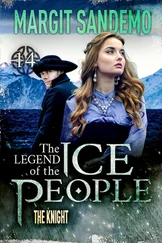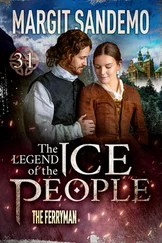“Matthew,” Matthew had repeated when she’d called him that at the party. He smiled, showing teeth. He was the Broomeville Junior-Senior High School principal, which was lame, and he was ten years older than Lorraine and also married, with a kid, which was lame, too. But Lorraine did like him when he smiled like that. “No one ever calls me Matthew,” he said, smiling, and his wife looked at him in that way married people look at each other when they’re promising to get into a really big fight later on, when there aren’t so many people around.
Lorraine hadn’t been invited over to Matthew’s house since that once, but she saw him often enough around town, and each time, they talked and acted as though they’d known each other longer and better than they actually did.
Matthew bent over, picked up the binoculars, handed them to her. He was wearing clothes that you wore in the woods during hunting season, even if you weren’t hunting — a bright red-and-black lined flannel shirt, a red hooded sweatshirt underneath, somewhat fouled jeans, work boots — but also a red baseball hat emblazoned with a white letter C.
“I was just out for a walk,” he said.
“I like your hat,” she said.
“I went to Cornell,” he said.
“And that’s why I like it,” she said. “I went there, too.”
He smiled at her in that way again, took off his hat, and put it on her head, and when she started to protest, he said, “Don’t worry. I have lots of them.” Then he looked around and said, “Beautiful, isn’t it?” Lorraine looked away from him and back at the forest. It was snowing a little bit harder now. The maples and walnuts were stark and naked and tough-looking even without their leaves; the evergreens and their droopy branches caught and held the snow. It sounded like the wind was blowing somewhere, but it was not blowing there. It is impossible to feel warm and cold at the same time. But where they were standing felt warm and cold at the same time. It really was beautiful. How could Lorraine not have noticed this? You missed a lot when you spent so much time looking through binoculars. She turned back to Matthew, and he was looking at her the way she’d been looking at the trees, the snow.
“What did you call me earlier?” she asked, and he repeated it, a sheepish smile on his face.
“Short for Lorraine Callahan,” he admitted. “I sometimes call you that, in my head.” He was still smiling at her, but not so sheepishly now. Locs, Locs. It was, heard objectively, an unforgivably stupid nickname. But Locs did not hear it objectively. It was the first time anyone had ever given her a nickname.
“Are we really going to do this?” Locs had said. Matthew didn’t say anything. He kissed her, but before he did that, he reached over and softly, softly, traced the marks the binoculars had made around her eyes.
The first thing Henrik noticed in the Lumber Lodge was the moose head on the wall opposite the entrance. Then the neon Saranac beer paraphernalia — neon signs, canoe paddles, T-shirts nailed to the walls — scattered everywhere. And then, finally, the large, beeping video game machine in the back corner. There were three teenage boys facing the machine; the one in the middle seemed to be the one playing the game, and the two on either side of him were spectators, or cheerleaders, or critics, Henrik couldn’t tell which. “Get it!” the two kept yelling. “I’m trying!” the one in the middle kept saying, but this didn’t seem to have much of an effect on his companions. “Get it!” they screamed. “Get fucking it!” After another half minute of this, the machine made a sound that was somewhere between laughing and dying, which caused the boy in the middle to smack the machine with the palms of both hands. “You didn’t get it,” the boy on the right said, and the boy in the middle struck the machine again.
“Easy, Kurt,” said a woman’s voice, coming from Henrik’s right. He turned and saw her, behind the bar, where she hadn’t been a second before. Behind her, on the wall, was a mural featuring hunters and large wild animals in snowy nature, neither group paying attention to the other, both of them basically just hanging out among the pines and boulders and snowdrifts, everyone minding their own business.
“Soup!” the woman said in the direction of the boys. The first thing Henrik noticed was that she had yellow hair. This was not a problem with translation: the woman’s hair was yellow, not blond, the difference being that yellow is a color found in nature whereas blond is a color found in hair. Her face was ruddy, raw-seeming, but still somehow smooth and shiny. Her cheeks were round and high, and on them were brown freckles, and above them were blue eyes, ice-blue eyes that looked as though they were melted. In other words, her eyes were watery. Possibly because she’d come from the kitchen and was holding three bowls of steaming something. This might have explained the color and texture of her skin, too. But nonetheless, to Henrik she looked rough, and beautiful: like a valuable rock cut with indelicate tools.
Henrik was obviously paying lots of attention to the woman, but the woman hadn’t seemed to notice him, and the boys hadn’t seemed to notice either of them. Instead they seemed to be having an argument about letters. “I-G-N,” one of them said. “That me, that’s my high score.” And another said, “You’re not an I nor a G nor an N, botard.”
“Boys!” the woman yelled. “Soup. Now!”
This time, the boys paid attention. They scuffed over, heads lowered, and, without a word of thanks or any other word, took their bowls and retreated to a table adjacent to the machine, where they commenced slurping.
That accomplished, the woman finally recognized Henrik’s presence. This is not to say that she said anything to him. She merely tucked her hair behind her ears, then began taking dirty glasses from the bar surface and depositing them into a container of steaming water. As she did this, she looked directly at Henrik, not at the glasses or the water. This was something he’d learned to do in art school. His teacher made Henrik draw without looking at the drawing. “You can see the soul only when you are not looking,” his teacher had taught. The teacher, with his gnarled hands and his whiskers, had seemed like the cartoon of wisdom, and so Henrik always listened to him, although Henrik never did learn whether he was supposed to be seeing the cartoon’s soul or his own, or maybe his teacher’s. Anyway, two by two, the woman whisked the glasses off the bar top and deposited them somewhere below, her eyes peering through the steam. Those eyes, those eyes. They really did make Henrik feel like she was looking into his soul. Her eyes were so beautiful they could make you forget who you were, or at least who you were supposed to ask for upon entering the Lumber Lodge. But Locs had given Henrik the impression that the Lumber Lodge was going to be his new home. Except it seemed to be only a tavern, not a hotel or pension or anything like that.
“Are there rooms here?” Henrik finally asked, and the woman raised her left eyebrow to say something with it, possibly, Why, yes, you’re in one. So he clarified: “Are there rooms to let?”
“To let ?” she said, with her mouth this time, although also with her eyebrow, which remained raised.
“Yes,” Henrik said, trying to sound sure of himself, although he wasn’t. He knew let was the word he wanted, but he wasn’t sure whether it was the word the woman wanted or one she even knew. What other word might be the word he was looking for? Sale, possibly, but he did not want to own the room, and when he was done with it (he assumed he would be done with it eventually, and possibly sooner than that), he didn’t want to have to sell it to someone else. Rent was another possibility, but didn’t that word also mean “torn”? Did it only mean “torn”? Henrik didn’t want to take the chance and end up asking the woman whether she had any torn rooms or whether he might tear one that wasn’t already torn. Then she might never let him let a room. And once he thought that sentence, he wondered if let was the right word after all. But he decided to stick with it anyway. “ Let .”
Читать дальше












